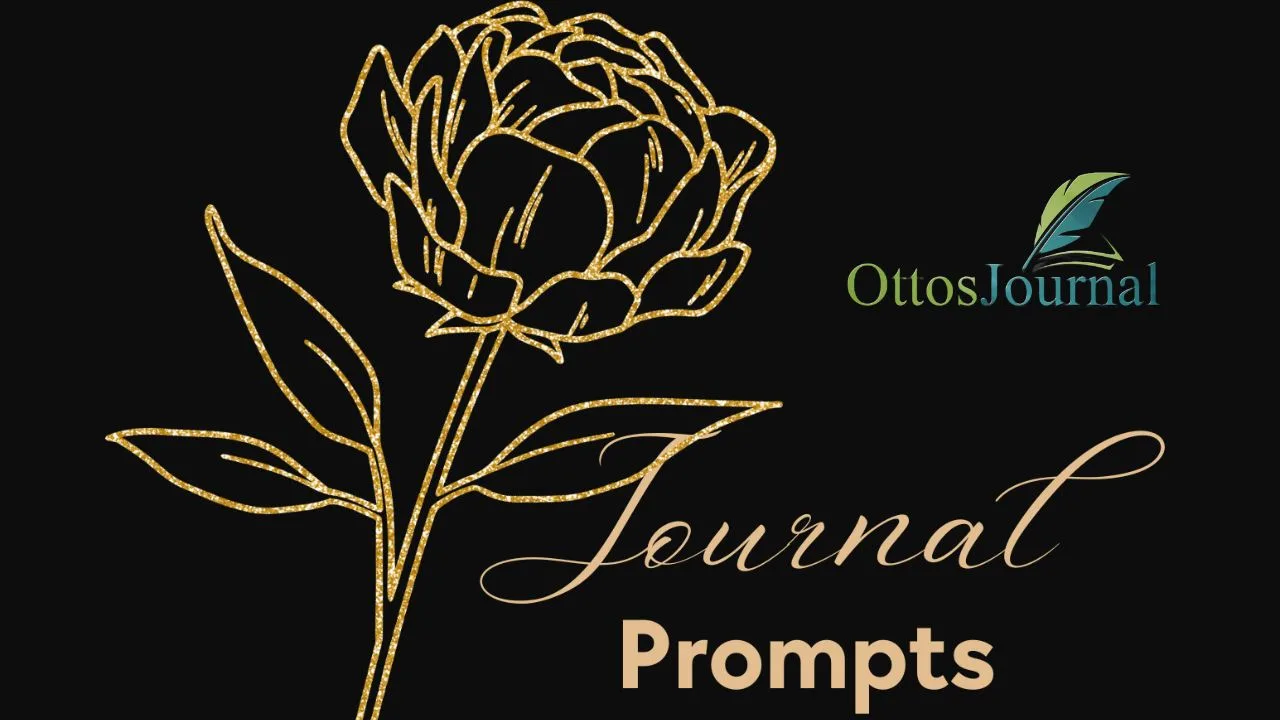Journal prompts for self-reflection are a powerful tool for anyone looking to gain a deeper understanding of themselves. By taking the time to reflect on one’s thoughts, emotions, and experiences, individuals can gain greater insight into their own lives and make positive changes for the future. Whether you are a seasoned journaler or just starting out, there are many prompts available to help guide your self-reflection journey.
One benefit of journal prompts is that they offer a structured way to approach self-reflection. Rather than simply writing down whatever comes to mind, prompts can help individuals focus on specific areas of their lives and explore them more deeply. For example, prompts may ask about one’s goals, values, or relationships, prompting individuals to think critically about these areas and identify areas for growth.
Another benefit of journal prompts is that they can help individuals develop greater self-awareness. By regularly reflecting on one’s thoughts and emotions, individuals can become more attuned to their own needs and desires. This can help them make more informed decisions and lead a more fulfilling life overall.
Understanding the Power of Journaling
Journaling is a powerful tool that can help individuals gain self-awareness, process emotions, and cultivate mindfulness. Writing has been shown to have a therapeutic effect, and journaling is no exception. By putting thoughts and feelings onto paper, individuals can gain a deeper understanding of themselves and their experiences.
The Role of Writing in Self-Reflection
Writing is a powerful tool for self-reflection. It allows individuals to explore their thoughts and emotions, and gain a deeper understanding of themselves. Journaling can help individuals identify patterns in their behavior, and gain insight into their motivations and desires. By reflecting on their experiences, individuals can learn from their mistakes and make positive changes in their lives.
Journaling for Mental Health and Resilience
Journaling has been shown to have a positive effect on mental health and resilience. Writing about traumatic experiences has been shown to have a therapeutic effect, and can help individuals process their emotions and gain a sense of control over their lives. Journaling can also help individuals cultivate resilience by providing a space to reflect on their strengths and accomplishments.
Cultivating Mindfulness Through Journaling
Journaling can be a powerful tool for cultivating mindfulness. By focusing on the present moment and writing about their experiences, individuals can develop a greater sense of awareness and mindfulness. Journaling can also help individuals identify negative thought patterns and replace them with positive ones.
Journaling is a powerful tool for self-reflection, mental health, and mindfulness. By putting thoughts and feelings onto paper, individuals can gain a deeper understanding of themselves and their experiences, process emotions, and cultivate resilience.
65 Journal Prompts For Self-Reflection
- What am I most proud of achieving last year?
- What are the most significant values that guide my life?
- How do I handle stress and what can I do better?
- What are my biggest strengths and how can I use them more?
- In what areas of my life do I need to be more disciplined?
- What does my ideal morning routine look like?
- What are the biggest obstacles currently facing me?
- Who has had the greatest impact on my life and why?
- What does happiness mean to me?
- How do I define success and am I on my way to achieving it?
- What lessons have I learned from my biggest mistakes?
- What am I most grateful for in my life right now?
- What are my goals for the next year and how will I achieve them?
- How do I practice self-care and how can I improve it?
- What aspects of my life do I usually avoid and why?
- What am I most passionate about and how can I incorporate it into my daily life?
- How do I handle failure and what can I learn from it?
- What are my fears and how can I face them?
- How do I express love to others and how do I like to receive it?
- What does my inner voice tell me on a daily basis?
- How do I deal with change and uncertainty?
- What qualities do I seek in a friend and do I embody these qualities myself?
- When do I feel most at peace?
- What does self-improvement mean to me?
- How do I handle conflicts with others?
- What does balance look like in my life?
- What am I avoiding by staying busy?
- How do I take responsibility for my actions?
- What are my most significant limiting beliefs?
- How do I show up for myself in tough times?
- What are the things I’d like to say no to?
- How do I manage my time and can I do it more effectively?
- What makes me feel most alive?
- What are the things I’d like to say yes to?
- How do I want others to remember me?
- What parts of my life need more attention?
- How do I express my creativity?
- What are my coping mechanisms when things go wrong?
- What does my perfect day look like?
- How do I stay true to my beliefs and values?
- What am I most curious about right now?
- How have I changed in the past year?
- What am I holding onto that I need to let go of?
- How do I feel about my career path?
- What are my biggest time-wasters?
- How do I communicate my needs to others?
- What does a fulfilled life look like to me?
- How do I recharge when I feel drained?
- What are the most important relationships in my life and why?
- How do I handle criticism?
- What brings me joy?
- What are my personal boundaries?
- How do I motivate myself?
- What does my self-talk sound like and how can I improve it?
- How do I deal with loneliness?
- What does being healthy mean to me?
- What are the things that worry me most about the future?
- How do I define a good life?
- What habits would I like to develop?
- What do I need to forgive myself for?
- When do I feel most authentic?
- How do I approach learning new things?
- What are my expectations for myself and are they realistic?
- What does spirituality mean to me?
- How do I envision my life in five years?
- What are the most significant lessons I’ve learned from my relationships?
Exploring Personal Growth with Prompts
Journal prompts for self-reflection can be a powerful tool for personal growth. By setting aside time to reflect on one’s experiences, thoughts, and emotions, individuals can gain a deeper understanding of themselves and their goals. This section will explore how journal prompts can be used to explore personal growth, set goals, identify strengths and areas for development, and navigate challenges.
Setting Goals and Tracking Progress
Journal prompts can be used to set goals and track progress towards achieving them. By reflecting on what they want to achieve and why, individuals can create a clear roadmap for their personal growth. Prompts such as “What are your top three goals for the next year? How will you measure progress towards these goals?” can help individuals clarify what they want to achieve and how they will know when they have succeeded.
Identifying Strengths and Areas for Development
Journal prompts can also be used to identify strengths and areas for development. By reflecting on their experiences, individuals can gain a deeper understanding of what they are good at and where they need to improve. Prompts such as “What are your top three strengths? How can you use these strengths to achieve your goals?” can help individuals build on their strengths and overcome their weaknesses.
Navigating Challenges with Reflective Prompts
Journal prompts can also be used to navigate challenges. By reflecting on their experiences and emotions, individuals can gain a clearer understanding of what is causing them stress or anxiety. Prompts such as “What are the biggest challenges you are facing right now? How can you overcome them?” can help individuals develop strategies for managing difficult situations.
Journal prompts for self-reflection can be a valuable tool for personal growth. By setting goals, identifying strengths and areas for development, and navigating challenges, individuals can gain a deeper understanding of themselves and their goals. With consistent reflection and practice, individuals can use journal prompts to achieve their personal and professional aspirations.
Enhancing Emotional Intelligence and Relationships
Journaling is an effective tool for enhancing emotional intelligence and improving relationships. By reflecting on one’s emotions, feelings, and thoughts, individuals can develop a better understanding of themselves and others. This section will explore how journal prompts can help individuals develop compassion and understanding, as well as reflect on their relationships and boundaries.
Developing Compassion and Understanding
Journal prompts for gratitude and love can help individuals develop compassion and understanding towards themselves and others. By focusing on positive emotions and experiences, individuals can cultivate a more positive outlook on life and improve their relationships. For example, a journal prompt for gratitude could be “What are three things you are grateful for today?” This simple prompt can help individuals focus on the positive aspects of their lives and develop a more optimistic attitude.
Another journal prompt for developing compassion and understanding is “What are three things you love about yourself?” This prompt can help individuals focus on their positive qualities and develop a more positive self-image. By developing self-compassion, individuals can also develop compassion towards others and improve their relationships.
Reflecting on Relationships and Boundaries
Journal prompts can also help individuals reflect on their relationships and boundaries. By reflecting on their feelings and thoughts, individuals can develop a better understanding of their relationships and set healthy boundaries.
For example, a journal prompt for reflecting on relationships could be “What are three things you appreciate about your partner/friend/family member?” This prompt can help individuals focus on the positive aspects of their relationships and develop a deeper appreciation for their loved ones.
Another journal prompt for reflecting on boundaries is “What are three things you need in a relationship/friendship?” This prompt can help individuals identify their needs and set healthy boundaries in their relationships.
Journal prompts can be a powerful tool for enhancing emotional intelligence and improving relationships. By developing compassion and understanding, as well as reflecting on relationships and boundaries, individuals can cultivate more positive relationships and improve their overall well-being.
Journaling for Specific Life Stages and Experiences
Journaling can be a powerful tool for self-reflection and growth, no matter what stage of life one finds themselves in. By reflecting on past experiences and future dreams, individuals can gain a better understanding of themselves and their personal values. In this section, we will explore some journal prompts that can be particularly useful for individuals in different life stages and experiences.
From Teenage Self to Adult Life
Journaling can be especially helpful for teenagers who are navigating the challenges of adolescence and transitioning into adulthood. Some journal prompts that may be useful for this stage of life include:
- What are my goals for the future, and what steps can I take to achieve them?
- What are some of the biggest challenges I am facing right now, and how can I overcome them?
- What are some of the most important lessons I have learned so far in life, and how can I apply them to my future?
Navigating Career and Personal Life Balance
Balancing career and personal life can be a challenge for many adults. Journaling can be a useful tool for exploring this balance and identifying areas for improvement. Some journal prompts that may be useful for this stage of life include:
- What are my priorities in life, and how can I balance them effectively?
- What are some of the biggest challenges I am facing in my career, and how can I overcome them?
- What are some of the most important values in my personal life, and how can I ensure that they are reflected in my career?
Addressing Past Experiences and Future Dreams
Journaling can be an effective tool for addressing past experiences and future dreams. By reflecting on the past, individuals can gain a better understanding of themselves and their values, and develop strategies for achieving their goals in the future. Some journal prompts that may be useful for this stage of life include:
- What are some of the most significant experiences I have had in my life, and how have they shaped me?
- What are some of my biggest dreams for the future, and what steps can I take to achieve them?
- What are some of the most important values in my life, and how can I ensure that they are reflected in my future?
Frequently Asked Questions
What are effective self-reflection prompts for personal growth?
Effective self-reflection prompts for personal growth are those that encourage individuals to explore their thoughts, feelings, and behaviors in a non-judgmental way. These prompts should be open-ended and thought-provoking, allowing individuals to delve deeper into their inner world. Some effective prompts for personal growth include questions about personal values, goals, and aspirations, as well as prompts that encourage individuals to reflect on their strengths and weaknesses.
How can journaling assist in achieving deeper self-understanding?
Journaling can assist in achieving deeper self-understanding by providing individuals with a safe and private space to explore their thoughts and feelings. Through journaling, individuals can gain insight into their patterns of behavior, emotions, and beliefs. Journaling can also help individuals to track their progress over time, identify areas for improvement, and develop a greater sense of self-awareness.
What types of questions should be included in a weekly reflection journal?
Weekly reflection journals should include questions that encourage individuals to reflect on their experiences, emotions, and behaviors over the past week. Some effective questions to include in a weekly reflection journal include: What were some of the highlights of your week? What challenges did you face, and how did you overcome them? What did you learn about yourself this week? What are some areas for improvement?
Can you provide examples of self-discovery journal prompts for adults?
Some examples of self-discovery journal prompts for adults include: What are your core values, and how do they influence your decisions? What are some of your biggest fears, and how do they hold you back? What are your long-term goals, and what steps can you take to achieve them? What are some of your biggest strengths, and how can you leverage them to achieve your goals?
How can students benefit from self-reflection journaling?
Students can benefit from self-reflection journaling in many ways. Journaling can help students to develop greater self-awareness, improve their critical thinking skills, and enhance their ability to express themselves in writing. Journaling can also help students to identify areas for improvement, set goals, and track their progress over time.
What are some thought-provoking journal prompts about life for deeper introspection?
Some thought-provoking journal prompts about life for deeper introspection include: What is the meaning of life, and how do you define it? What are your biggest regrets, and what can you learn from them? What are your deepest desires, and how can you work towards achieving them? What legacy do you want to leave behind, and how can you begin to build it today?




